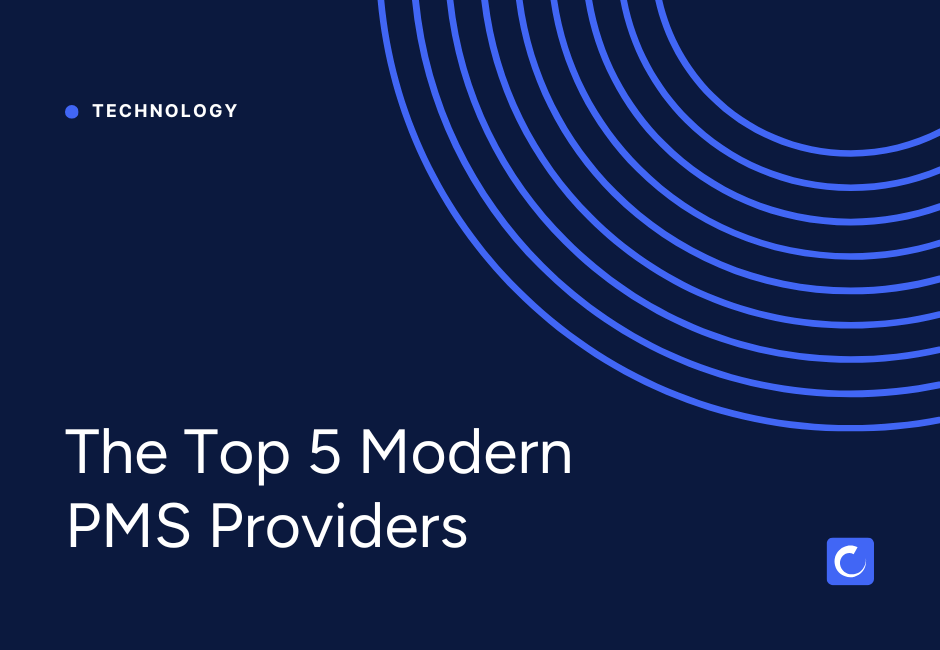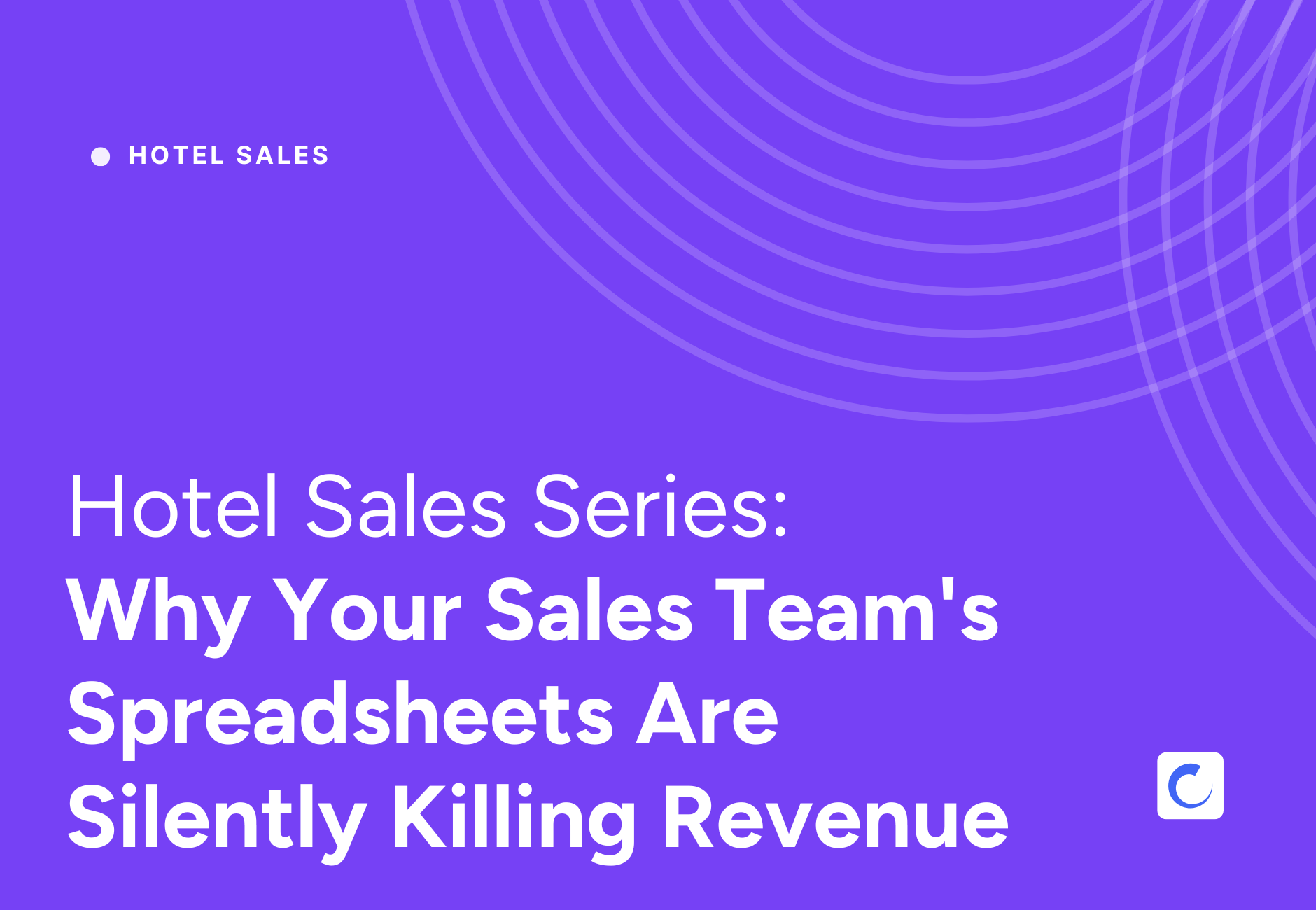
With every passing year, the hospitality industry is getting more and more competitive. It is uncertain how many hotels there are in the world, but STR estimates that there are 187,000 hotels worldwide. Every now and then, you hear the news of the increasing prevalence of OTAs, Airbnbs, and new hotel openings. In this competitive situation, the hotels are leveraging every opportunity to increase hotel sales, guest satisfaction and establish a strong brand identity.Right now, the golden opportunity for the hotel and event industry is making the best use of guest data. The data that hotels collect is the powerhouse of information, and it has the potential to lead hotels in the direction of escalating their hotel sales like never before!
If you are a hotelier, you know how crucial it is to have satisfied guests to increase revenue. It's important to collect information about the guests, learn about them, and predict what they'll want before they even ask for it to ensure they have a nice experience and fulfill their expectations. This blog will outline how using guest data to your advantage can boost hotel sales.
Let’s get started!
Understanding Guest Data
Guest data refers to the information you collect from your guests before, during, and after their stay. It serves as a database and includes various details like phone numbers, email addresses, social media account handles, personal preferences, and travel habits. This information allows you to create guest profiles similar to buyer personas and lets you tailor the services to meet their specific needs.
Significance of Guest Data for Hotel Sales
The time period that we are living in is all about data. Refining the guest data and utilizing it to your advantage to increase hotel sales is crucial for several reasons:-
1. Anticipating Guest Needs
Guest data provides insights into guest preferences, such as what sort of room types, amenities and services they want. By collecting and analyzing all this data, hotels can anticipate and fulfill guest needs even before they are explicitly expressed. This proactive approach enhances the guest experience and increases the likelihood of upselling or cross-selling opportunities, improving hotel sales performance.
2. Launching Targeted Marketing Campaigns
With guest data, hoteliers can segment their customer base and create marketing campaigns targeting specialized groups. Hotels can effectively engage with their target audience, increase brand loyalty, and ultimately drive sales conversions by customizing promotions and offers for specific guest segments.
3. Strengthening customer relationship management
Hoteliers can strengthen their relationship with the guests by maintaining a centralized system, i.e. (CRM) which contains all the relevant information to provide personalized communication and offer loyalty programs based on guest preferences and travel history.
4. Providing personalized services
Once you collect the guest data, you must refine it and extract meaningful information. This extracted information helps you understand your guests’ preferences, travel habits, past booking history, and things they like and don’t like. By grasping this information as a hotelier, you can give them customized services they never thought of getting. This approach helps increase guest satisfaction and encourage repeat bookings, leading to higher hotel sales.
5. Optimizing revenue management process
By accessing all the relevant information in regards to booking patterns, demand trends and guest behavior, hoteliers can optimize their pricing, distribution, and inventory management. This data-driven approach enables hotels to maximize revenue potential, increase occupancy rates, and optimize revenue per available room (RevPAR).For in-depth insights, refer- How Capturing Hotel Guest Data Can Increase Revenue
Types of Guest Data and Strategies to Collect it
When it comes to collecting guest data, various types of information can be gathered to enhance the guest experience, tailor marketing efforts, and improve overall operations. Here are some common types of guest data and strategies to collect them:
1. Personal Information
Personal information typically includes names, email addresses, phone numbers, and physical addresses. These details can be collected from the guests during the booking stage or at the time of check-ins. To ensure accuracy, it is beneficial when guests enter their information themselves. Additionally, offering valuable resources such as ebooks, guides, or whitepapers can be an effective strategy. Guests may be enticed to share their personal information in exchange for accessing this valuable content. This approach not only helps in collecting guest data but also serves as a lead-generation tool and aids in building a database of potential customers.
2. Demographics
By collecting information about age, gender and occupation, you can customize your service offerings. For instance, by analyzing your CRM, you get to know that business travellers form a significant proportion of your customer segment then you can create programs, special offers, and discounts catering to this specific group to increase your hotel sales numbers. The ideology behind collecting this information is to target your messages and offerings to the right segment of people. This kind of data might be gathered during giveaways or while making guest reservations.
3. Preferences
In order to give personalized experiences to the guests, it’s necessary to understand their preferences in-depth. For example, if you are aware that your guest appreciates a bottle of wine upon arrival and if you do so, then it automatically enhances your hotel brand identity in the eyes of the guest. You can collect this information by doing polls on social media and sending out forms to gather more information during the pre-arrival stage or check-in. Capturing guest preferences not only helps you increase hotel sales but also carves a way for hotel upselling too.
4. Historical Data
Historical data basically includes the stay history of guests at the hotel, booking details, special requests, past transactions, on-site behavior, communication preferences, involvement in loyalty programs and many such things. Access to this historical data is necessary to forecast the demands of the guests in their next stay and fulfil their needs while they are staying at the hotel premises. You can collect this sort of information from your PMS insights, reservations and booking systems, and guest surveys and feedback.
To know where to harness your hotel data and the best ways to put it to use, read- Put Your Hotel Data To Work.
7 Ways to Leverage Guest Data to Boost Hotel Sales
Leveraging guest data effectively can significantly boost hotel sales. Here are some strategies to maximize the use of guest data and drive sales:-
1. Targeted Upselling
Analyze guest preferences and past purchases to identify upselling opportunities. If a guest frequently books suites, you can proactively offer them an upgrade to a higher-tier suite with additional amenities before their arrival. This targeted upselling strategy capitalizes on their preferences, driving higher room revenue.
2. Dynamic Pricing Based on Demand
Leverage historical booking data to implement dynamic pricing strategies. If certain periods consistently experience high demand, you can increase room rates during those times. On the other hand, during low-demand periods, you can offer discounted rates to attract more bookings and maximize occupancy.
3. Personalized Recommendations
Utilize guest data to provide personalized recommendations based on their past stays and preferences. For instance, if a guest has previously enjoyed family-friendly activities, you can suggest nearby attractions suitable for families in your pre-stay communication. This enhances the guest experience and encourages additional bookings.
4. Loyalty Program Rewards
Utilize guest data from your loyalty program to offer personalized rewards. For instance, if a loyal member frequently stays during a specific month, you can offer them an exclusive discount for that period to incentivize them to book again. This encourages repeat bookings and strengthens guest loyalty.
5. Personalized Packages and Offers
Utilize guest data to create customized packages and offers that align with their preferences. If a guest has previously booked golf-related activities, you can create a golf package that includes discounted rounds, golf lessons, and preferred tee times. This tailored offering enhances the guest experience and increases revenue from ancillary services.
6. Targeted Online Advertising
Utilize guest data for targeted online advertising campaigns. For example, if a guest has previously shown interest in a specific destination or type of accommodation, you can retarget them with display or social media ads promoting relevant offers for their desired travel experience. This targeted advertising increases the likelihood of conversion and drives bookings.
7. Personalized Email Marketing
Utilize guest data to send personalized email marketing campaigns. For example, if a guest has previously booked a spa treatment, you can send them a targeted email promotion for discounted spa services during their next stay. This personalization increases the likelihood of conversion and drives incremental revenue.
Wrapping up!
With guest data as a valuable asset, hotels can unlock new levels of success and create unforgettable experiences for their guests. So, embrace the power of guest data and watch your hotel sales soar to new heights. Let us know how guest data helped your business reach new heights!



